 Petzlover
Petzlover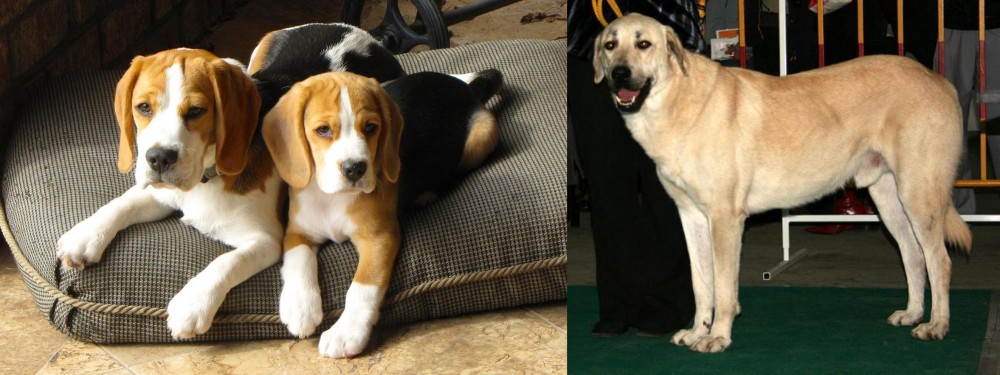 Beagle is originated from United Kingdom but Central Anatolian Shepherd is originated from Turkey. Beagle may grow 35 cm / 13 inches shorter than Central Anatolian Shepherd. Beagle may weigh 59 kg / 130 pounds lesser than Central Anatolian Shepherd. Beagle may live 3 years more than Central Anatolian Shepherd. Beagle may have more litter size than Central Anatolian Shepherd. Beagle requires Low Maintenance. But Central Anatolian Shepherd requires Moderate Maintenance
Beagle is originated from United Kingdom but Central Anatolian Shepherd is originated from Turkey. Beagle may grow 35 cm / 13 inches shorter than Central Anatolian Shepherd. Beagle may weigh 59 kg / 130 pounds lesser than Central Anatolian Shepherd. Beagle may live 3 years more than Central Anatolian Shepherd. Beagle may have more litter size than Central Anatolian Shepherd. Beagle requires Low Maintenance. But Central Anatolian Shepherd requires Moderate Maintenance
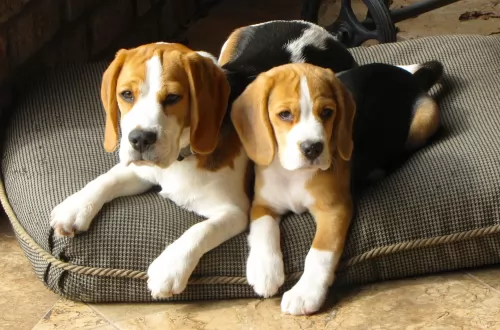 There are some accounts of similar size dogs used for hunting in Greece in 5th century BCE. During 8th century the Talbot Hound breed was created. In 11th century Talbot Hound was brought to England by William the Conqueror. While using in hunting they are found to be a slow runner. To overcome the situation and increase their running speed the hunting people bred Talbot Hound with Grey hounds. The beagles described earlier were very small in size and are said as pocket beagles.
There are some accounts of similar size dogs used for hunting in Greece in 5th century BCE. During 8th century the Talbot Hound breed was created. In 11th century Talbot Hound was brought to England by William the Conqueror. While using in hunting they are found to be a slow runner. To overcome the situation and increase their running speed the hunting people bred Talbot Hound with Grey hounds. The beagles described earlier were very small in size and are said as pocket beagles.
 The Central Anatolian Shepherd’s lineage is ancient, with the large dog originating from the Anatolia region of central Turkey. He has been used for guarding flocks against predatory wolves and has adapted to living in extreme weather conditions.
The Central Anatolian Shepherd’s lineage is ancient, with the large dog originating from the Anatolia region of central Turkey. He has been used for guarding flocks against predatory wolves and has adapted to living in extreme weather conditions.
The Turkish shepherds would put a spiked collar on the dog to protect him against predators going for the neck of the dog. Today the dog is still being used as a sheep dog and it is closely related to the Kangal Dog.
In 1965 the first pair of Anatolian Shepherds arrived in the UK. A pair were also provided by the Turkish prime minister to the United States government. Today he is a majestic dog still serving man. He is an Anatolian Shepherd Dog, a working dog breed, recognized by the American Kennel Club.
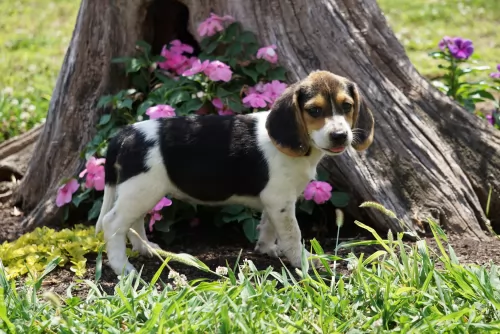 They are small and compact breed, and always happy and fun loving. They should be trained by patient and creative training techniques. Beagles are very much interested in using their nose in finding interesting scents and are food focussed. They always wake their neighbours at 6 am by their half howling. They think everyone is their best friend and love to have friendship with other animals and humans. They have about 220 million scent receptors and are said as "a nose with feet" by humorist Dave Barry.
They are small and compact breed, and always happy and fun loving. They should be trained by patient and creative training techniques. Beagles are very much interested in using their nose in finding interesting scents and are food focussed. They always wake their neighbours at 6 am by their half howling. They think everyone is their best friend and love to have friendship with other animals and humans. They have about 220 million scent receptors and are said as "a nose with feet" by humorist Dave Barry.
We can see beagles at many airports in their duty. They can easily trace out the illegal things being smuggled. Since they are small in size they are suitable for apartment living. But they like to walk around several times. They should be exercised for plenty of time. Obedience training should be given to them by giving food reward. Beagles are wanderers of nature and so if possible they will try to escape. So it is necessary to make them microchipped or to wear a collar, to find them easily.
 The Central Anatolian Shepherd is a large,impressive looking dog that possesses great strength, endurance and agility. He is beautiful to look at and is well muscled and strong.
The Central Anatolian Shepherd is a large,impressive looking dog that possesses great strength, endurance and agility. He is beautiful to look at and is well muscled and strong.
He stands at roughly 66-76 cm and weighs 40 to 70kg. The head is large and strong, but in good proportion with the rest of the dog’s body. He has brown eyes and his ears are floppy. The tail is long and set high and when the dog is alert, the tail is carried high, making a wheel shape, otherwise the tail is held low, curling up at the tip.
The short to medium length coarse coat is essentially fawn colored and the dog has a black mask. With the dog, early training and socialization will be needed as he is a strong, stubborn, dominant breed who will require firm leadership from his human owners.
The Central Anatolian Shepherd Dog is a loyal guard dog that becomes possessive over his flock, his human family and anything that he regards as his property. He is aloof around strangers, being suspicious of them.
He will require a firm, positive owner who provides training and socialization. He is an affectionate family pet and gets on well with children who have been taught how to treat dogs and other animals with care and respect. This is a bold, confident dog without aggression who is intelligent, proud and independent.
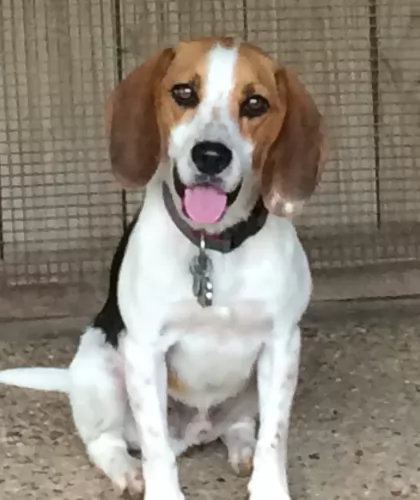 They are very good companion for children. They love to play and spend time with children.
They are very good companion for children. They love to play and spend time with children.
They have millions of scent receptors and so they can be seen in Airports and many important places in duty. Also they are interested in hunting small rodents.
They adapt well for apartment living but they don't like being alone for a long time. If kept alone for a long time in back yard they will begin to bark and dig pit or try to escape. Beagle likes hot weather more than cold weather.
Beagles are difficult to train up. Many people say it will take about one year to house train beagles. They have an attitude of "what's in it for me". But it depends on the personality and temperament of the individual.
 The large, rugged Anatolian Shepherd is a dog that has been developed essentially to work as a guardian of livestock. He is a dignified, calm kind of dog who is fiercely possessive of those he guards. He is independent and will require a firm, assertive owner.
The large, rugged Anatolian Shepherd is a dog that has been developed essentially to work as a guardian of livestock. He is a dignified, calm kind of dog who is fiercely possessive of those he guards. He is independent and will require a firm, assertive owner.
He won’t enjoy lying around the home with nothing to do. These are dogs who like to be busy, and therefore he is more a country-life dog than being found in the city on a small property. Make sure that if your pet hasn’t got a working role, that he is provided with exercise, although as a large dog, he isn’t particularly playful and doesn’t require loads of exercise.
Provide him with a caring, loving home and this large, beautiful dog will become your loyal and devoted friend who will guard you with his life.
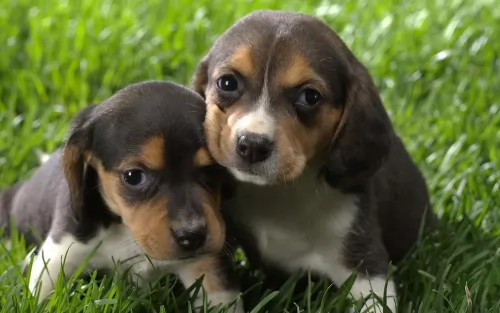 Beagle's ears should be checked occasionally for any sign of infections like discoloured wax, dirt or foul odour. Also their nails should be trimmed regularly. They should be exercised regularly in order to maintain a proper weight. The most common health problems in beagles are obesity, epilepsy and allergies.
Beagle's ears should be checked occasionally for any sign of infections like discoloured wax, dirt or foul odour. Also their nails should be trimmed regularly. They should be exercised regularly in order to maintain a proper weight. The most common health problems in beagles are obesity, epilepsy and allergies.
They are average shedders and having short hair thus it is easy to groom. They should be made to bath with a mild and non irritant shampoo.
 The Anatolian Shepherd Dog is a hardy, healthy dog who isn’t likely to get sick easily. The dog can live to be 11, 12, 13 years of age when he receives excellent care. Like any pure breed though, he is susceptible to hereditary disorders and some of the other common health issues.
The Anatolian Shepherd Dog is a hardy, healthy dog who isn’t likely to get sick easily. The dog can live to be 11, 12, 13 years of age when he receives excellent care. Like any pure breed though, he is susceptible to hereditary disorders and some of the other common health issues.
This condition is always a problem with a big dog. It’s an abnormal development of the hip joint and it can cause lameness and painful arthritis of the joints. It is brought about by a combination of environmental- as well as genetic factors.
This is a common type of blood cell cancer diagnosed in dogs. Lymphoid tissue is present in quite a few places in the body including lymph nodes, liver and spleen, and dogs of any age can be affected.
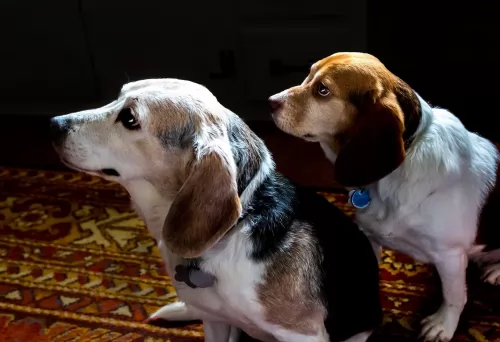 After 4 weeks of birth the puppy can be given solid foods by slowly increasing the ratio for many weeks. The recommended food is fresh meat of chicken breast, lamb, turkey and lean hamburger. The vegetables can be given as raw or steamed. The vegetables that will be good for them are raw baby carrots, broccoli, cauliflower and sweet peas. The puppies should be fed 3 to 4 small meals per day as they require more nutrients for their growth.
After 4 weeks of birth the puppy can be given solid foods by slowly increasing the ratio for many weeks. The recommended food is fresh meat of chicken breast, lamb, turkey and lean hamburger. The vegetables can be given as raw or steamed. The vegetables that will be good for them are raw baby carrots, broccoli, cauliflower and sweet peas. The puppies should be fed 3 to 4 small meals per day as they require more nutrients for their growth.
The grown up dog should be fed with the same food and 1 complete meal is enough for them. The meal should be given at noon. The food should be given based on calories as they should not get overweight. In addition to food, fruits such as blueberries, raspberries, banana and mango can also be given to them periodically.
Beagles should be exercised daily in order to maintain proper weight. Beagles are average shedders and having short hair which is easy to groom. They should be made to bath periodically with a mild shampoo.
Moderate exercise such as walking and cardio exercise such as chasing a ball should be given to them for staying them to be active and for maintaining good health.
 The Central Anatolian Shepherd sheds fairly heavily so he will require brushing at least twice a week. Grooming is important and won’t only include brushing, but ear cleaning and nail trimming too as well as proper dental hygiene.
The Central Anatolian Shepherd sheds fairly heavily so he will require brushing at least twice a week. Grooming is important and won’t only include brushing, but ear cleaning and nail trimming too as well as proper dental hygiene.
A dog such as the Anatolian Shepherd, with his floppy ears, will also need to have his ears checked and cleaned to avoid ear infections. There are some of these dogs where the hair needs to be plucked from the ear canal to ensure proper air circulation.
It is important that you are skilled to clean the ears properly, and if in any doubt, to avoid damage to the ear, consult your vet for sound advice.